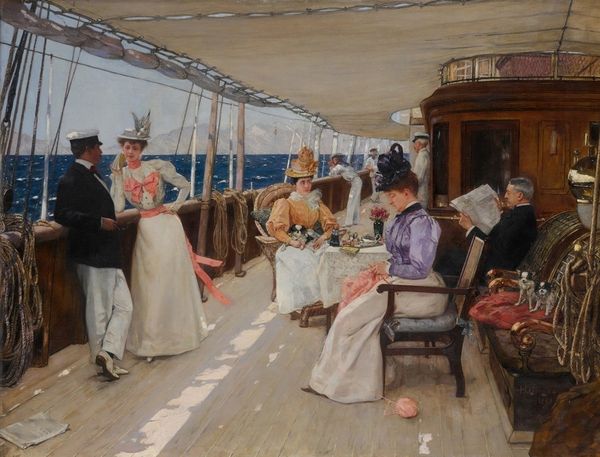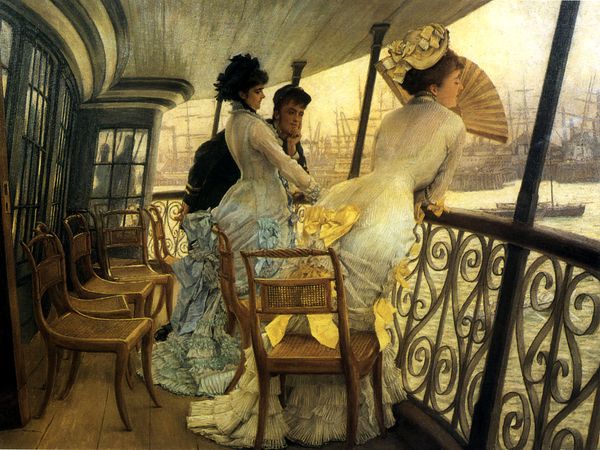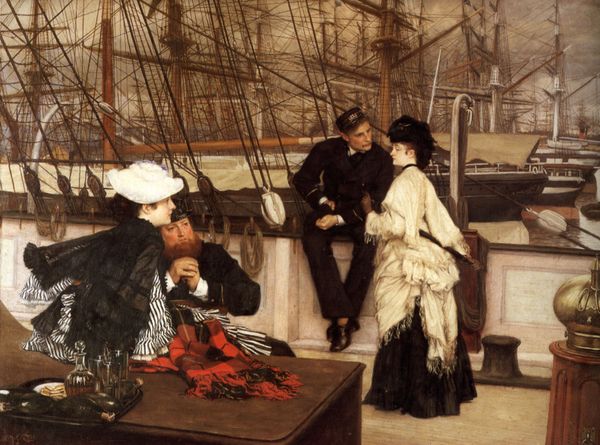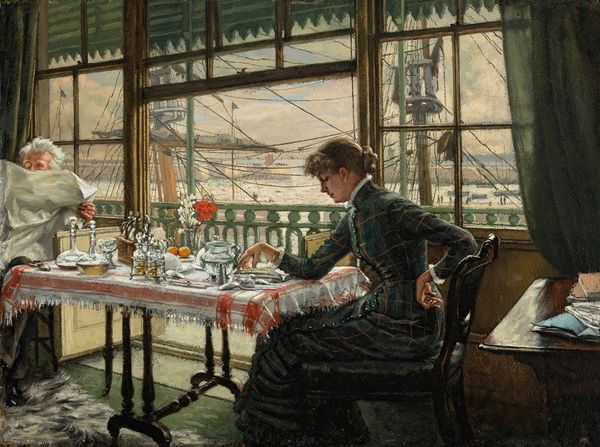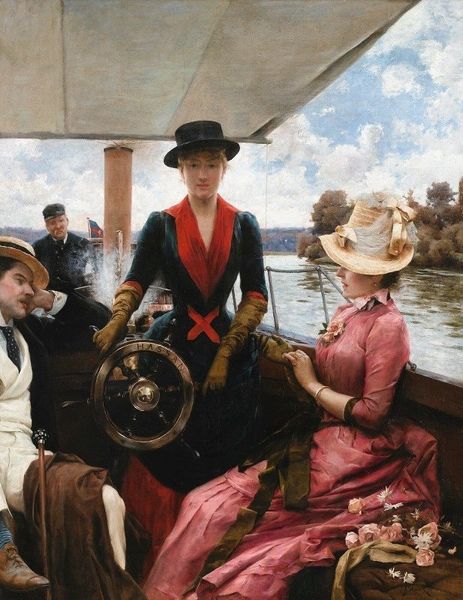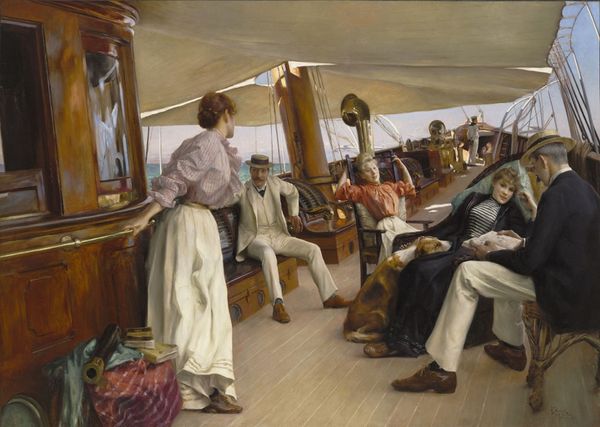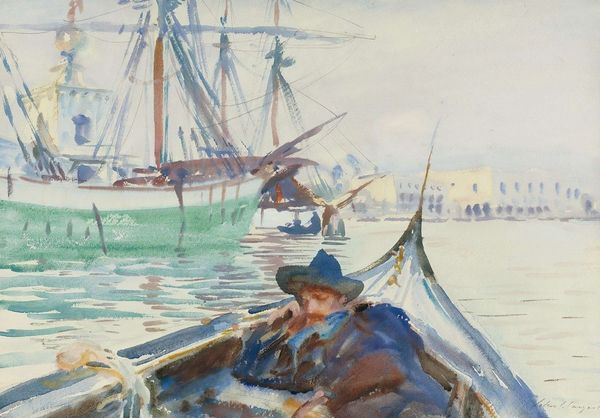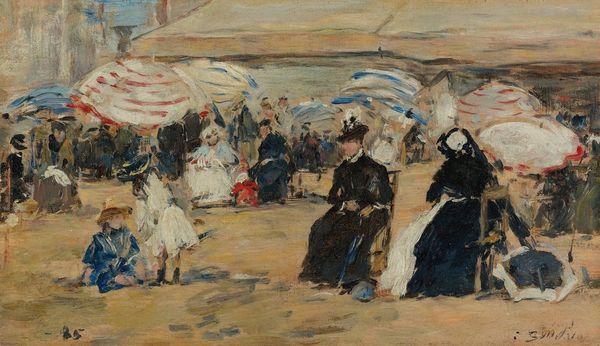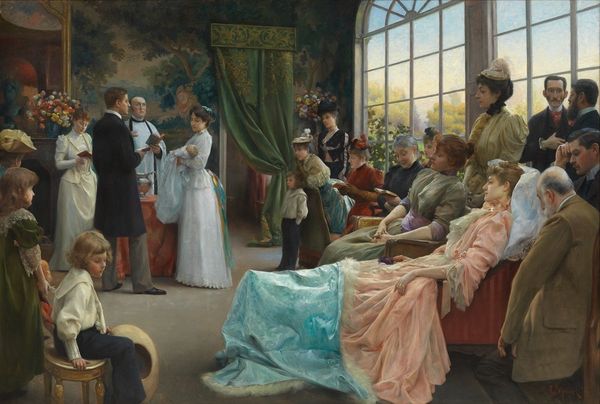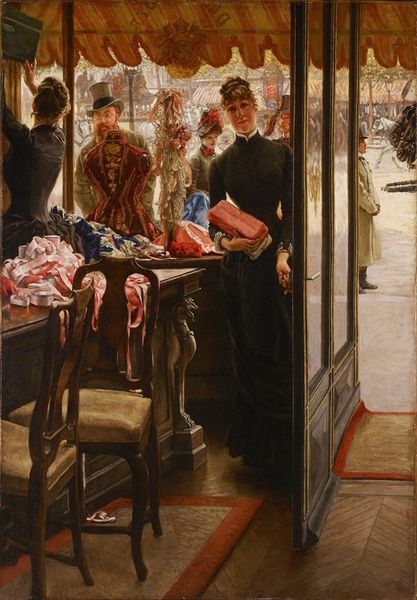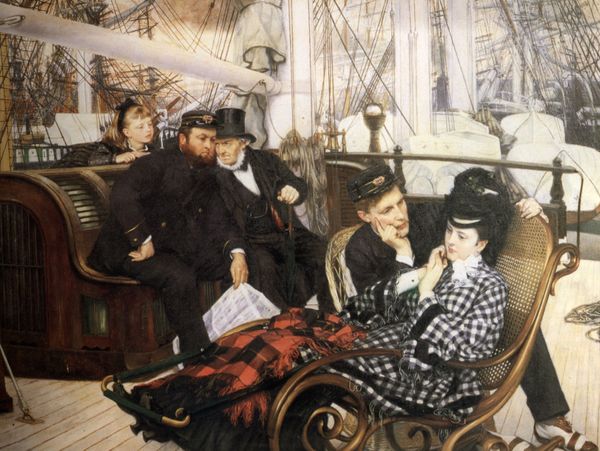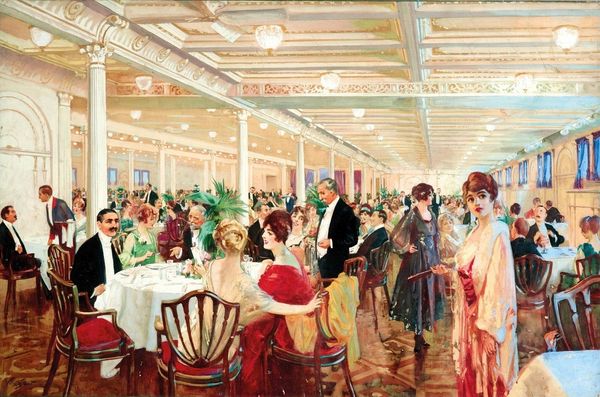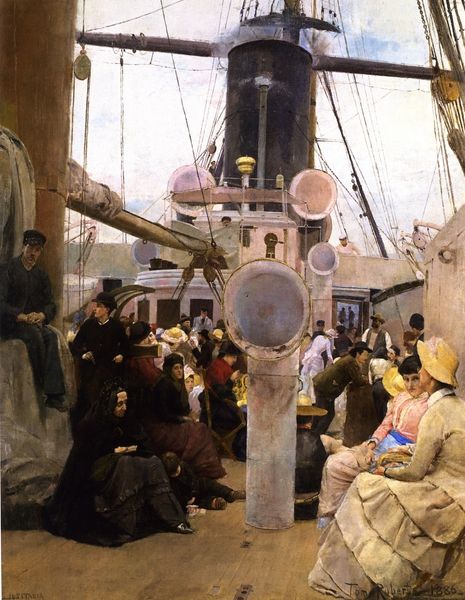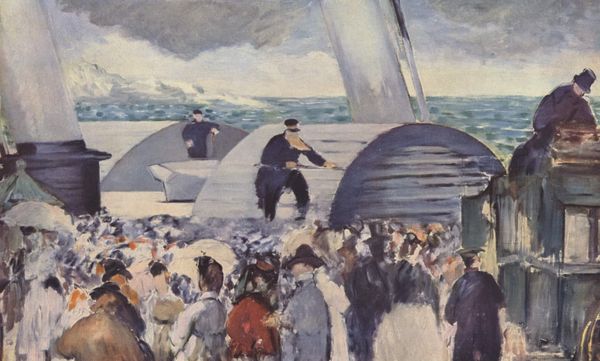
#
figurative
#
street festival
#
building site documentary shot
#
street view
#
street art
#
culture event photography
#
derelict
#
underpainting
#
urban art
#
painting painterly
#
mixed media
Copyright: Public Domain: Artvee
Editor: So, this is "The Ball on Shipboard," painted by James Tissot in 1874. It's oil on canvas, and the thing that strikes me is the overwhelming sense of social stratification; it feels so rigid and performative. What's your take? Curator: You’ve picked up on something crucial: performance. Consider the historical context – post Franco-Prussian War France, a society grappling with immense social upheaval and anxieties around class, national identity, and even gender roles. These anxieties surface through Tissot’s keen eye. The meticulously rendered clothing, the careful posing... how does this "performance" of the upper class intersect with broader socio-political forces? Editor: I guess they are performing a return to normalcy or even stability amidst all this turmoil? Curator: Precisely! Look at the flags. What nations are represented, and what might their presence suggest about international relations and France’s position in the world at the time? Also, notice how some figures appear marginalized or isolated despite being physically present at this "ball". It makes you wonder: who truly belongs, and who is simply performing belonging? What statement, then, is Tissot making? Editor: So, it’s not just a snapshot of a social event but more like a commentary on the illusions of power and belonging during that period? A subtle criticism, maybe? Curator: Exactly. It invites us to interrogate those illusions and consider the power dynamics at play. It also invites discussions about similar “performances” and divisions we still witness today. How much has truly changed, do you think? Editor: Wow, I definitely see the painting in a different light now. I was so focused on the surface that I missed the deeper layers of social commentary. Curator: It's a potent reminder that art serves not only as a mirror to society, but also as a catalyst for critical self-reflection. I have never looked at it that way! Thanks.
Comments
No comments
Be the first to comment and join the conversation on the ultimate creative platform.
